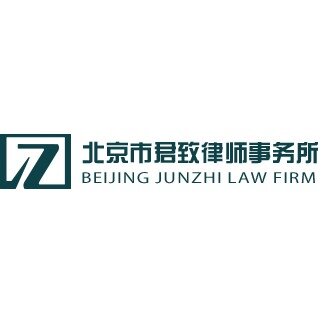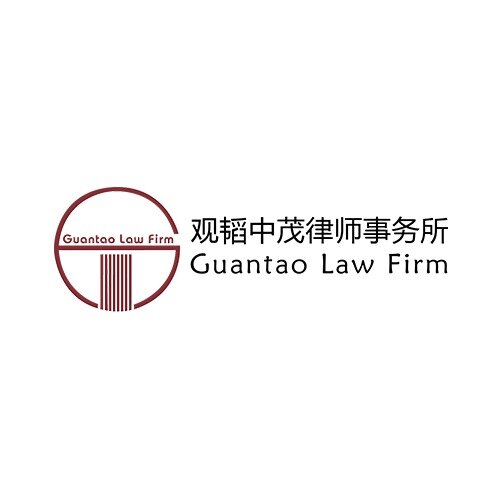Best Private Equity Lawyers in Beijing
Share your needs with us, get contacted by law firms.
Free. Takes 2 min.
List of the best lawyers in Beijing, China
About Private Equity Law in Beijing, China
Private equity in Beijing, China refers to investment capital that is not listed on public exchanges. Instead, it involves investing in private companies or delisting public companies to restructure and later sell or list them again. This field is highly dynamic in Beijing, given the city's status as a leading financial and innovation hub in China. Private equity deals in Beijing often involve complex structuring, due diligence, regulatory approvals, and negotiations, all of which must comply with relevant Chinese laws and regulations. The evolving legal framework in Beijing caters to both domestic and foreign investors, making legal guidance essential for successful transactions.
Why You May Need a Lawyer
Legal support is vital in private equity matters in Beijing for many reasons. Common scenarios where you may require a private equity lawyer include:
- Negotiating and drafting investment agreements
- Conducting due diligence on target companies
- Navigating Chinese regulatory requirements and approvals for foreign investors
- Structuring cross-border transactions
- Managing exit strategies, such as initial public offerings or sales
- Resolving disputes involving joint ventures or shareholders
- Drafting fund documentation and partnership agreements
- Interpreting and complying with anti-monopoly and national security laws
- Assisting with tax planning and compliance for investments
Each situation demands a clear understanding of local laws and business customs. Engaging a qualified lawyer can help you identify risks, safeguard your investments, and facilitate smoother transactions.
Local Laws Overview
Private equity activities in Beijing are governed by a robust legal framework, with the following key aspects:
- Foreign Investment Law: This law is designed to regulate and promote foreign investment in China, with certain industry restrictions and required approvals for specific sectors.
- Company Law: This law governs the establishment, operation, and governance of companies in China, including joint ventures and wholly foreign-owned enterprises.
- Securities Law: Regulates public offerings, listing processes, and exit mechanisms for private equity funds via stock exchanges.
- Anti-Monopoly Law: Applies to mergers and acquisitions, requiring notification and approval from authorities if thresholds are met.
- National Security Review Mechanism: Certain investments are subject to national security review, especially in sensitive industries.
- Partnership Law: Regulates the legal structure often used by domestic private equity funds in China.
- Local Regulations: Beijing has its own guidelines and incentives for private equity funds, including registration requirements and compliance obligations with the Beijing Municipal Local Financial Supervision and Administration.
Legal procedures must be precisely followed, making it crucial to seek advice from professionals familiar with both national and local regulations applicable to private equity in Beijing.
Frequently Asked Questions
What is private equity and how does it operate in Beijing?
Private equity refers to investments made into private companies or public companies with the intent to make them private, restructure, and later sell or list them. In Beijing, private equity is an active sector and typically involves strict compliance with Chinese laws and regulations.
Can foreigners invest in private equity funds in Beijing?
Yes, foreigners can invest in private equity funds, but they must comply with the Foreign Investment Law and may face restrictions in certain sectors. Legal and regulatory approvals may also be required.
What are the common structures for private equity funds in Beijing?
Most private equity funds in Beijing are structured as limited partnerships, as allowed by Chinese law. There are also funds structured as companies, but partnerships are favored due to tax and management advantages.
Do private equity transactions in Beijing require regulatory approval?
Yes, many private equity transactions, especially those involving foreign investors or sensitive industries, require regulatory review and approval from authorities such as the China Securities Regulatory Commission and the Ministry of Commerce.
What due diligence is required for private equity investments?
Due diligence typically covers legal, financial, and commercial aspects. It includes examining company licenses, compliance, employment matters, tax records, intellectual property rights, and other risks.
How can a lawyer assist with private equity transactions in Beijing?
A lawyer can provide critical services such as legal due diligence, contract drafting, negotiations, compliance checks, risk management, deal structuring, regulatory submissions, and dispute resolution.
What are the exit options for private equity investments in China?
Common exit options include selling shares to third parties, initial public offerings (IPOs) in China or overseas, or buybacks by the company or management.
Are there specific taxes applicable to private equity investors in Beijing?
Yes, taxes may include corporate income tax, value-added tax, individual income tax, and stamp duty. The tax treatment depends on the fund structure, investor identity, and the investment vehicle used.
Is dispute resolution reliable for private equity investors in Beijing?
China has developed robust legal mechanisms for resolving disputes, including courts and recognized arbitration institutions. However, complexities arise in cross-border matters and enforcement of foreign judgments.
What should I consider before entering a private equity agreement in Beijing?
You should consider deal structure, regulatory requirements, protection of investor rights, dispute mechanisms, exit strategies, and compliance with applicable laws. Legal review by a qualified lawyer is critical.
Additional Resources
If you need further information or assistance regarding private equity in Beijing, you may find these resources helpful:
- China Securities Regulatory Commission
- Ministry of Commerce of the People's Republic of China (MOFCOM)
- Beijing Municipal Local Financial Supervision and Administration
- All China Lawyers Association
- Asset Management Association of China (AMAC)
- Chinese Private Equity Association
- National Development and Reform Commission (NDRC)
These organizations provide regulatory guidance, public notices, and can direct you to licensed professionals specializing in private equity matters.
Next Steps
If you are considering a private equity investment or transaction in Beijing, here is how you can proceed:
- Identify your investment goals and prepare relevant documentation.
- Research reputable law firms or lawyers specializing in private equity law in Beijing.
- Schedule a consultation to discuss your objectives, legal options, and potential risks.
- Gather all necessary business and financial documents for a thorough legal review.
- Work with your lawyer to conduct due diligence, structure the deal, and manage regulatory filings.
- Review and negotiate contracts with professional legal guidance.
- Stay informed of ongoing legal obligations and compliance requirements after the investment is made.
Finding early legal support can help you navigate the complexities of private equity transactions in Beijing and ensure your interests are well protected.
Lawzana helps you find the best lawyers and law firms in Beijing through a curated and pre-screened list of qualified legal professionals. Our platform offers rankings and detailed profiles of attorneys and law firms, allowing you to compare based on practice areas, including Private Equity, experience, and client feedback.
Each profile includes a description of the firm's areas of practice, client reviews, team members and partners, year of establishment, spoken languages, office locations, contact information, social media presence, and any published articles or resources. Most firms on our platform speak English and are experienced in both local and international legal matters.
Get a quote from top-rated law firms in Beijing, China — quickly, securely, and without unnecessary hassle.
Disclaimer:
The information provided on this page is for general informational purposes only and does not constitute legal advice. While we strive to ensure the accuracy and relevance of the content, legal information may change over time, and interpretations of the law can vary. You should always consult with a qualified legal professional for advice specific to your situation.
We disclaim all liability for actions taken or not taken based on the content of this page. If you believe any information is incorrect or outdated, please contact us, and we will review and update it where appropriate.















